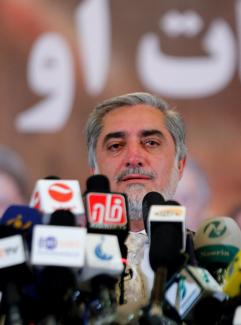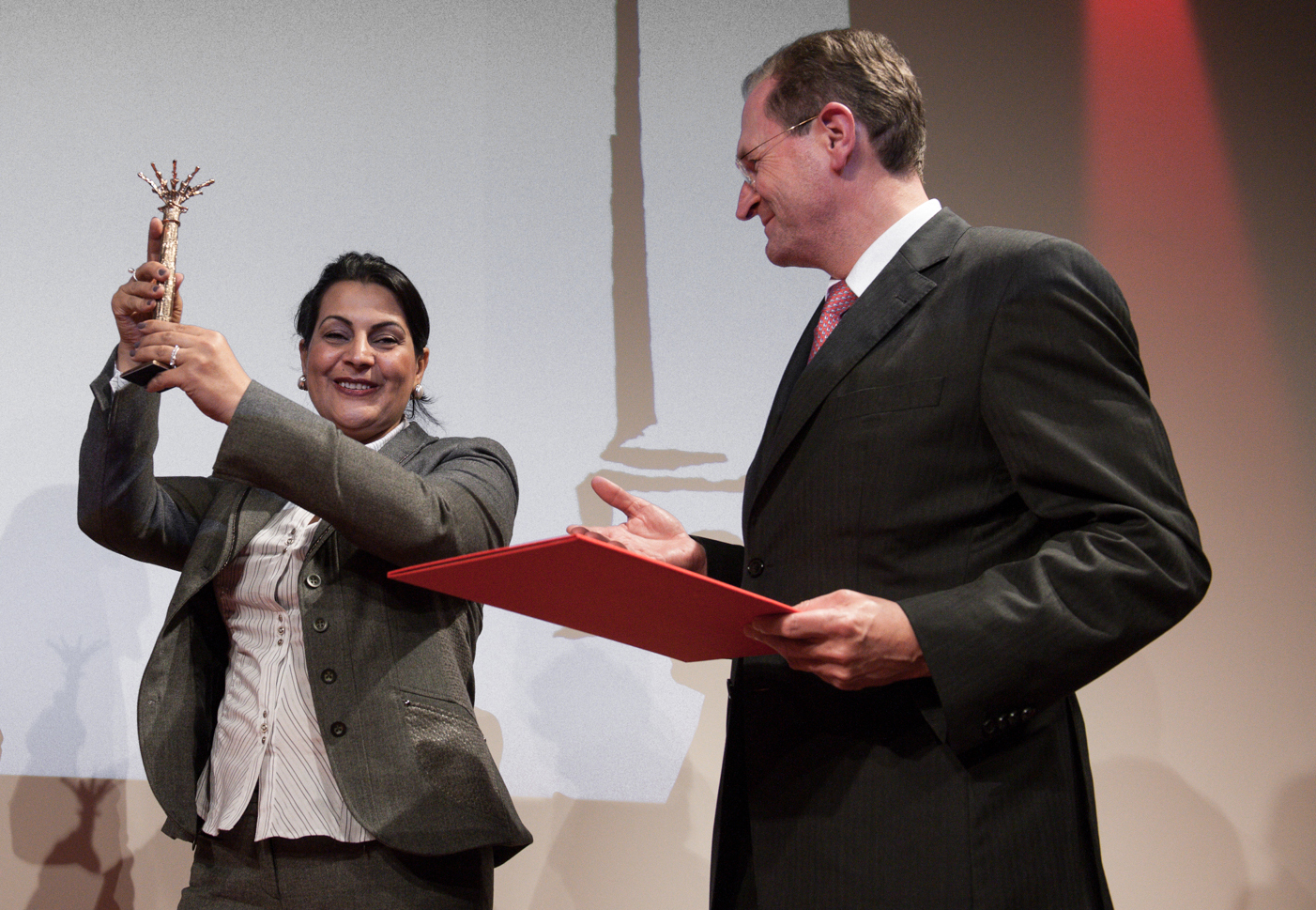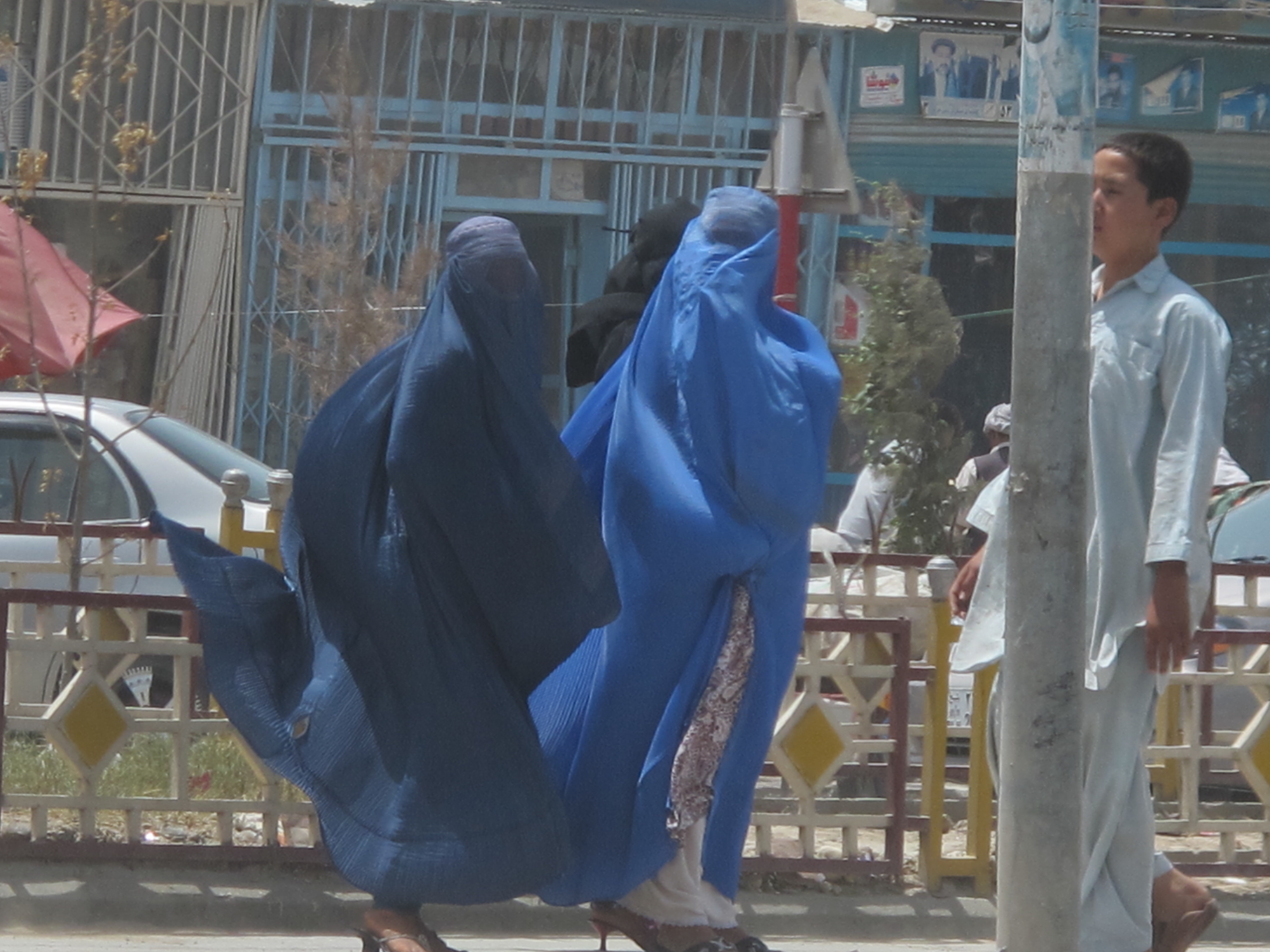Election campaign
Lasting relevance of violence

How do the two remaining candidates, Abdullah Abdullah and Ashraf Ghani, differ from one another?
Well, I think that what they have in common matters more. Western leaders are comfortable with both of them, both speak good English, and both have served in the cabinet of President Hamid Karzai. Abdullah was foreign minister, Ghani finance minister. Ethnic ties are certainly relevant. Abdullah is half Pashtun, half Tajik, and he was close to Ahmed Shah Masood. Accordingly, he benefits from Masood's reputation as a liberation hero in the struggle against the Taliban. Abdullah spent all war years either in Afghanistan or in refugee camps. His contacts to religious forces are better than Ghani's. The minorities tend to prefer him. Ghani, on the other hand, is Pashtun, but he had an entirely western education. He studied at the American university in Beirut. He lived in the USA for some time and has worked for the World Bank. Western governments might actually find negotiating with him more difficult than with Abduallah, because Ghani knows their weak spots. Abdullah would probably have slight advantages in stabilising the country, but Ghani, being an economist, might be more inspired in economic issues.
So neither candidate looks threatening in western eyes?
No, they don't. There definitely is scope for a re-start. It is noteworthy that President Karzai did not manage to mobilise his networks in a way that would have allowed his candidate Zalmai Rassoul to feature in the run-off elections. The two remaining candidates are now trying to win over the various regional elites. Ultimately, they must prevail in clientelism networks. The good thing is that neither of them has a rigid ideology. Both are prepared to compromise, to engage other parties peacefully, and even to negotiate with the Taliban. Both, moreover, are in favour of the security agreement with the USA.
What are the Taliban? A cadre organisation of fundamentalists or rather some kind of mafia?
I find it is remarkable that we still do not have a good understanding of the Taliban after all these years. There is a kind of top-rung leadership in Pakistan, and it certainly enjoys some support from Pakistan's secret service. At the same time, the Taliban forces in Afghanistan are interested in local-level autonomy, and to a considerable extent, they are already involved in local-level clientelism networks. By the way, I think that this is the reason why the Taliban never disrupted elections with massive violence in the past years. There were never more than isolated incidents.
You have said that the two remaining presidential candidates are quite similar in political terms. Does that mean that the people basically accept western ideas of democracy and free markets?
I don't think many Afghan people worry about those things. What really matters is clientelism, which may yet result in people not accepting a close election result. A close election result is likely however. The Pashtuns account for not quite the half of the population, and all other ethnic groups' watch them with suspicion.
Does the Sunni-Shia divide matter? It matters in Syria's civil war and seems to be of growing relevance in the entire Middle East.
Yes, this difference matters. People are aware of it. However, it coincides with ethnic affiliations. To put things very simply, Iran is supporting the Shia, and Pakistan and Saudi Arabia are supporting the Sunnis. In any case, the next president has his work cut out for him: He will have to ensure peace, kick-start the economy and fight corruption – and fighting corruption will take a long time, given that patronage is deeply entrenched.
To stem corruption, he will probably have to come up with an alternative to the drug economy. Clean governance looks extremely improbable as long as the main export industry is illegal.
It is amazing that this topic is hardly being discussed any more. All sides have found some kind of arrangement with the drug economy. In provinces such as Helmand or Uruzgan, the drug economy is a matter of course. Today, not only heroin is exported from Afghanistan. Hashish exports have increased fast recently. However, even the international partners have realised that attempts to enforce anti-drug laws have only triggered more violence. Today, the issue is simply hushed up.
Would there be an economically attractive alternative to the drugs business?
Well, there is some hope that new revenues will soon be generated from producing oil and gas and mining ores and mineral resources. It is interesting, moreover, to see Chinese and Indian companies becoming involved in the commodities business, and some of them have actually made investments. Accordingly, structural change looks possible. It may yet prove a snag, however, that the Chinese plan long term, and may only want to start resource exploitation many years from now.
The resource curse might be an ever more fundamental snag. Typically, countries with abundant oil or ore are not governed well. They are marked by corruption and violence.
Yes, that is true, and I think the stage is set for conflicts between the central government and local elites in Afghanistan. Local settings of violent conflict remain relevant. That is evident, for instance, in the fact that Ghani teamed up with the Abdul Rashid Dostum, a notorious warlord, in the election campaign. Whether that helps or hurts him, remains to be seen.
Do you have an idea of what Afghanistan will look like ten years from now?
Well, obviously nobody can tell you that with any precision. Probably there will not be another full-blown war, and local-level power arrangements will stay very important. At the same time, it is already evident that politics is becoming more authoritarian and conservative. The freedom of the press is being restricted, and so are women's rights. There will probably be lots of investment ruins, moreover, as infrastructure projects are discontinued or not maintained properly. Shoddy roads, dry canals and empty schools mark many places even today.
What role will the international donors play after the withdrawal of ISAF (the International Security Assistance Force) by the end of this year?
Germany's Federal Government wants to cooperate with Kabul in the long run. The Americans and Britons, however, are already doing less in terms of official development assistance. The World Bank and the Asian Development Bank have made multiple-year investments, so they will stay engaged for some time. However, the donors do not have any coherently shared strategy. They never did. It is a pity that a lot of money has been spent unwisely without any real impact.
Conrad Schetter is the academic director of the Bonn International Conversion Centre (BICC).
schetter@bicc.de









